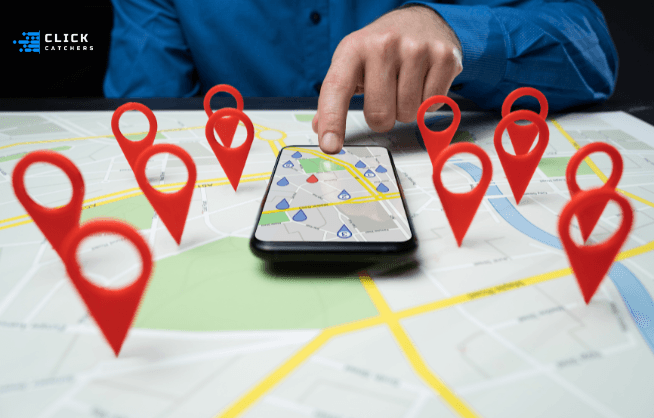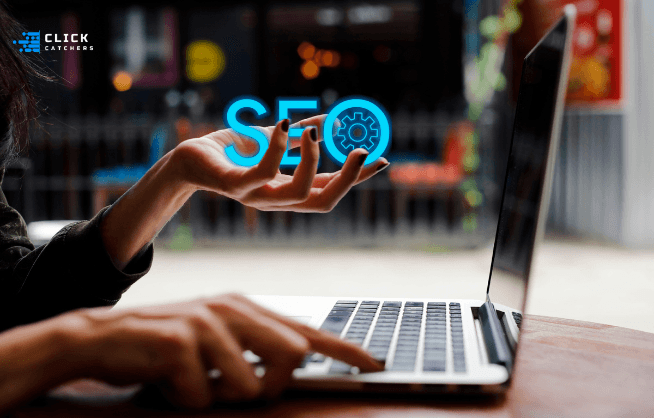Introduction
Local SEO (Search Engine Optimization) is essential for businesses looking to attract nearby customers and increase their online presence. With more people relying on search engines to find local products and services, ensuring that your business appears in relevant searches can make a significant difference in driving traffic, leads, and revenue. Whether you own a small shop, a service-based business, or a large company with multiple locations, Local SEO can help you reach the right audience and grow your business effectively.
This article will explain what Local SEO is, why it matters, and how it can help your business thrive in an increasingly competitive market.

What is Local SEO?
Local SEO is the process of optimizing your online presence to appear in location-based search results. This means ensuring that when potential customers search for services like “best coffee shop near me” or “plumber in [city],” your business shows up at the top of search results, especially in Google’s Local Pack (the map-based listing at the top of search results).
It involves optimizing your Google Business Profile (formerly Google My Business), managing local citations, gathering customer reviews, and ensuring your website is locally optimized with relevant keywords, content, and technical SEO improvements.
Why Local SEO Matters for Your Business
1. Increases Visibility in Local Searches
When people search for businesses in their area, they tend to trust the top search results. Studies show that nearly 50% of all Google searches have local intent, meaning potential customers are actively looking for businesses like yours. If your business doesn’t appear in local searches, you could be missing out on valuable leads.
2. Drives Targeted Traffic & Leads
Unlike traditional advertising, which targets broad audiences, Local SEO focuses on people who are already interested in your products or services. When someone searches for a business near them, they are likely ready to make a purchase or book a service, leading to higher conversion rates and better customer acquisition.
3. Improves Trust & Credibility
A well-optimized Google Business Profile with positive customer reviews, updated contact details, and accurate business information builds trust and credibility with potential customers. Businesses that appear in Google’s Local Pack often get more clicks and conversions because they are seen as reputable and well-established in their area.
4. Increases Foot Traffic to Physical Stores
For brick-and-mortar businesses, Local SEO is a game-changer. Many customers search for businesses online before visiting in person. A strong local presence can increase foot traffic by making it easier for customers to find you and get directions directly from Google Maps.
5. Gives You an Edge Over Competitors
If your competitors are investing in Local SEO and you’re not, you risk losing potential customers to them. By optimizing your business for local searches, you can outrank competitors and attract more leads. Even small businesses can compete with larger brands by focusing on localized marketing strategies.

How to Optimize for Local SEO
Now that you understand the importance of Local SEO, here are some key strategies to help your business rank higher and attract more local customers:
1. Optimize Your Google Business Profile
Your Google Business Profile (GBP) is one of the most critical factors in Local SEO. Make sure to:
✅ Claim and verify your listing.
✅ Fill out all details, including business name, address, phone number (NAP), website, hours, and services.
✅ Add high-quality photos and videos of your business.
✅ Encourage satisfied customers to leave positive reviews.
✅ Post regular updates, promotions, and events to keep your profile active.
2. Use Local Keywords
Incorporate geo-specific keywords into your website’s content, meta titles, descriptions, and blog posts. Examples include:
✔️ “Best coffee shop in [city]”
✔️ “Affordable plumbing services in [town]”
✔️ “Local bakery near [neighborhood]”
Using location-based keywords helps search engines understand where your business operates and makes it easier for customers to find you.
3. Get Listed in Online Directories & Citations
Ensure your business is listed in relevant online directories like Yelp, Bing Places, Apple Maps, and industry-specific directories. Your business name, address, and phone number (NAP) should be consistent across all platforms to improve credibility and rankings.
4. Encourage Customer Reviews
Online reviews play a huge role in Local SEO and customer trust. Encourage satisfied customers to leave reviews on Google, Yelp, and Facebook. Responding to reviews (both positive and negative) shows that you care about customer feedback and builds trust.
5. Optimize for Mobile Users
Since most local searches happen on mobile devices, your website must be mobile-friendly. Ensure it:
✅ Loads quickly
✅ Has easy-to-click buttons
✅ Displays correctly on all screen sizes
✅ Offers a seamless user experience
6. Leverage Local Content Marketing
Creating local content can help improve your rankings and establish authority in your area. Examples of local content include:
✔️ Blog posts about local events, news, or industry trends.
✔️ Case studies or success stories from local customers.
✔️ Guides or FAQs about services in your area.
7. Use Schema Markup for Local SEO
Schema markup is a type of structured data that helps search engines understand your business better. Adding Local Business Schema to your website can improve your chances of appearing in rich search results, including business hours, reviews, and contact details.
8. Build High-Quality Local Backlinks
Earning backlinks from local websites, news outlets, blogs, and community organizations boosts your domain authority and improves local rankings. Consider guest blogging, sponsorships, or collaborations to get links from reputable local sources.
Measuring Local SEO Success
To track the effectiveness of your Local SEO efforts, monitor the following key metrics:
📊 Google Business Profile Insights – Check profile views, search queries, customer actions, and reviews.
📊 Google Search Console & Google Analytics – Monitor organic search traffic, keyword rankings, and click-through rates.
📊 Local Rankings – Track your rankings for location-specific keywords using SEO tools like Moz, Ahrefs, or SEMrush.
📊 Conversions & Calls – Measure how many leads, calls, or store visits you get from local searches.
Regularly reviewing these metrics helps you refine your strategy and improve your local search presence over time.

Final Thoughts
Local SEO is one of the most powerful digital marketing strategies for businesses looking to attract local customers and grow revenue. Whether you’re a small business, a multi-location brand, or a service provider, investing in Local SEO helps you increase visibility, drive targeted traffic, and stay ahead of competitors.
By optimizing your Google Business Profile, using local keywords, gathering reviews, and creating location-based content, your business can improve its local search rankings and attract more customers.
Ready to boost your local search presence? Start implementing these strategies today and watch your business grow!

